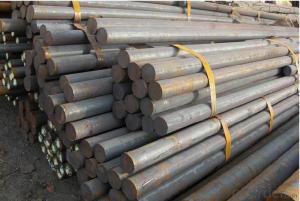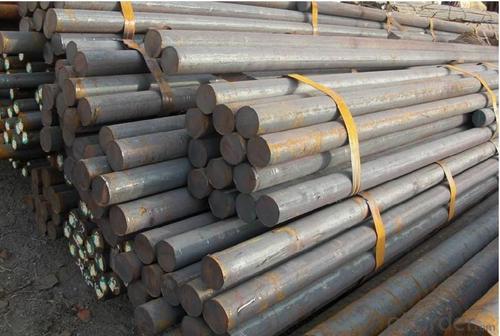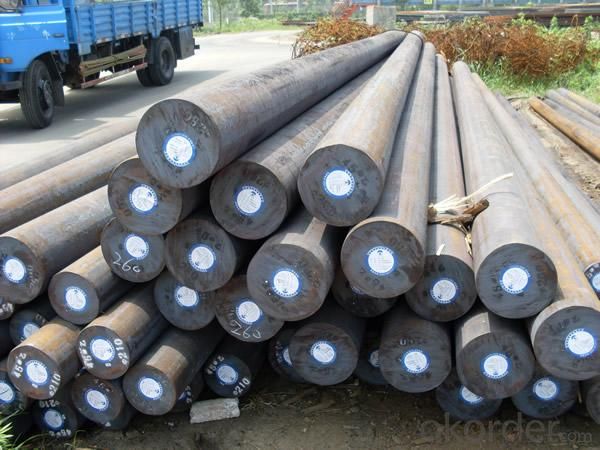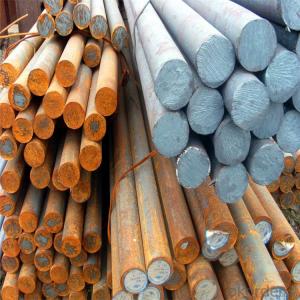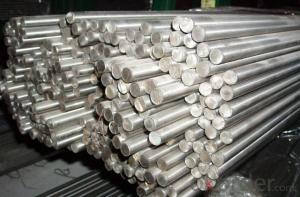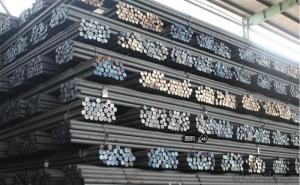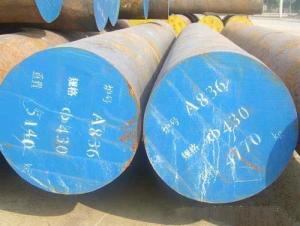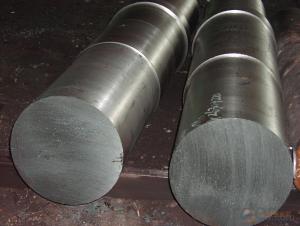S65C Alloy Steel Bar Round Flat Square Shape
- Loading Port:
- Tianjin
- Payment Terms:
- TT OR LC
- Min Order Qty:
- 25 m.t.
- Supply Capability:
- 50000 m.t./month
OKorder Service Pledge
OKorder Financial Service
You Might Also Like
Specification
S65C Alloy Steel Bar Round Flat Square Shape
Product Description:
1. Sizes: Diameter: 16mm-300mm; Length: 6m, 9m, 12m
2. Grade: S65C
3. Invoicing on theoretical weight or actual weight as customer’s request
4. Shape: Round bar, solid bar of steel with circular section
5. Technique: Hot rolled, forged, cold rolled
Specifications:
Material | S65C | Round bar | Dia(mm) | Max 700 |
Process | EAF + LF + VD + Forged + Heat Treatment (optional) | Length (mm) | Max 12000 | |
Heat treatment | Normalized / Annealed / Quenched / tempered | Plate bar | Thickness(mm) | Max 200 |
Delivery condition | Hot forged +Rough machined (black surface after Q/T)+ Turned (optional) | Width(mm) | Max 3000 | |
Test | Ultrasonic test according to SEP 1921-84 D/d | Length (mm) | Max 12000 |
Chemical Composition:
Standards: ASTM,JIS,GB,EN(DIN,BS,NF)
Grade | C | Si | Mn | Cr | Ni | Cu |
AISI 1055 | 0.62~0.70 | 0.17~0.37 | 0.50~0.80 | ≤0.25 | ≤0.30 | ≤0.25 |
Delivery condition:
EAF+LF+VD+(ESR), rolled / forged, annealed / Q+T, black/peeled/turned, UT tested
Application:
Carbon steel rod applies to chemical industry, shipping industry,manufacturing industry, construction, decorate industry, electric power, pump shafts, sanitary wares, furniture handles, boiler, high temperature resistant,low temperature resistant,corrosion resistant
Sales Information:
Material | High Quality Carbon Structural Steel S65C |
Size | Diameter:10-700mm Length:6000mm-12000mm |
Origin place | Made In China |
Delivery Condition | Hot rolled, cold drawn, forged |
Surface require | Black, grinding, bright, polish |
Heat treatment | Quenched, Tempered, annealed |
Packing | Seaworthy packing ,wooden case ,carton,woven bag or at client's requires |
Delivery time | According to order’s quantity. |
Trade Term | EXW,FOB,CIF |
Payments | T/T or L/C at sight |
Port | China main Port, such as shanghai, Dalian, Shenzhen port. |
MOQ | 25 Metric Ton |
Product show:
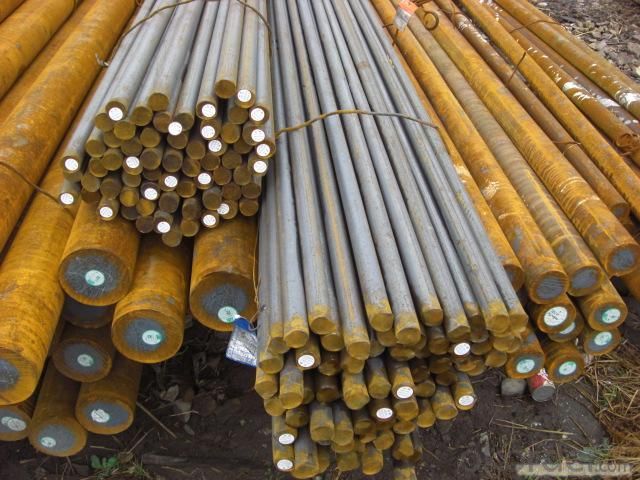
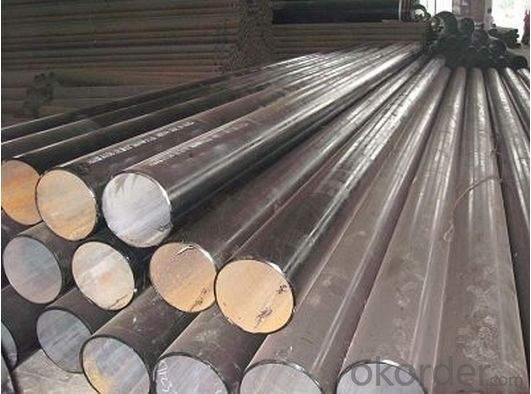
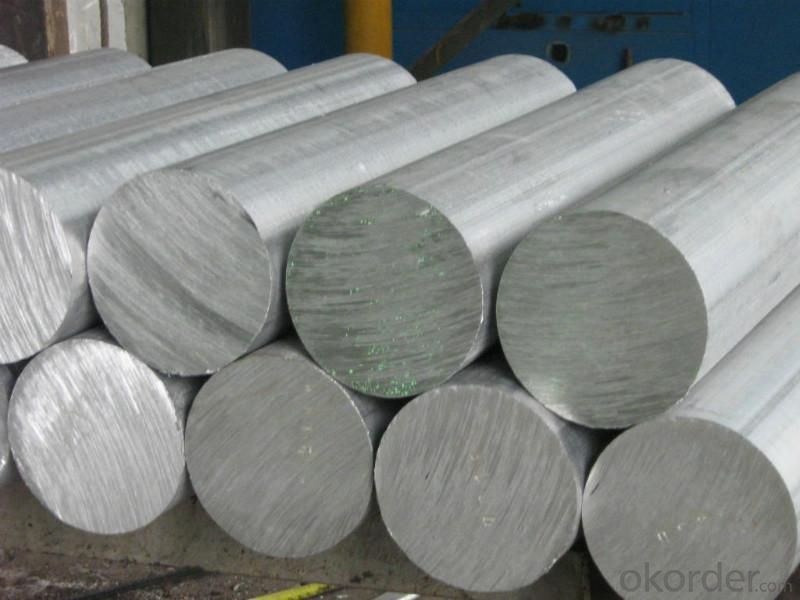
- Q: How does the heat treatment process affect the hardness of special steel?
- The heat treatment process can significantly affect the hardness of special steel. By subjecting the steel to controlled heating and cooling cycles, the microstructure of the steel can be altered, leading to changes in its hardness. Hardening, for example, involves heating the steel to a high temperature and then quenching it rapidly, resulting in a harder and more brittle material. On the other hand, tempering, which involves reheating the hardened steel at a lower temperature, can reduce the brittleness while maintaining a desirable level of hardness. Thus, the heat treatment process allows for precise manipulation of the hardness of special steel to meet specific requirements.
- Q: How is special steel used in the production of bearings?
- Special steel is used in the production of bearings due to its high strength, durability, and resistance to wear and corrosion. The use of special steel ensures that bearings can withstand heavy loads, high speeds, and harsh operating conditions, providing smooth and reliable performance. The steel used in bearings is carefully engineered to have specific properties, such as hardness and toughness, which are essential for their effective functioning.
- Q: What are the different forms of special steel available in the market?
- There are several different forms of special steel available in the market, including stainless steel, alloy steel, tool steel, high-speed steel, and carbon steel. Each of these forms has its own unique properties and uses, making them suitable for various applications in industries such as construction, automotive, manufacturing, and aerospace.
- Q: What are the different surface finishes available for special steel?
- There are several different surface finishes available for special steel, including polished, brushed, satin, and matte finishes. Each finish offers a unique appearance and texture, allowing for customization and versatility in various applications. Additionally, special coatings such as powder coating or electroplating can be applied to enhance the surface finish and provide additional protection against corrosion or wear.
- Q: How does special steel perform in marine environments?
- Special steel performs exceptionally well in marine environments due to its high corrosion resistance. It is specifically designed to withstand the harsh conditions of saltwater, preventing corrosion and ensuring long-term durability. Additionally, special steel has excellent strength and toughness properties, making it suitable for various marine applications, such as shipbuilding, offshore structures, and underwater equipment.
- Q: What are the specific requirements for special steel used in the food processing industry?
- The specific requirements for special steel used in the food processing industry include being resistant to corrosion, easy to clean and sanitize, non-reactive with food products, and compliant with food safety regulations. It should also have high strength and durability to withstand heavy usage and frequent cleaning.
- Q: How does special steel contribute to sustainability?
- There are several ways in which special steel contributes to sustainability. To begin with, special steel possesses a high level of durability and has an extended lifespan. As a result, products created from special steel, such as buildings, bridges, and machinery, enjoy a longer period of service compared to other materials. This reduces the necessity for frequent replacements and repairs, thereby diminishing the consumption of resources and energy needed for manufacturing. In addition, special steel is easily recyclable. When it reaches the end of its life cycle, it can be effortlessly collected and transformed into new steel products without any loss in quality. This diminishes the demand for fresh raw materials and minimizes the environmental impact brought about by mining and extraction processes. Moreover, special steel is renowned for its strength and lightweight characteristics. This enables the design and construction of lighter and more energy-efficient structures and vehicles. For instance, by incorporating special steel into automobiles, the weight of the vehicle can be reduced, leading to lower fuel consumption and greenhouse gas emissions. Furthermore, the production of special steel has become more sustainable over time. Steel manufacturers are embracing advanced technologies and processes to decrease energy consumption, emissions, and waste generation. This encompasses the use of energy-efficient furnaces, the recycling of waste heat, and the implementation of water management strategies. All in all, the utilization of special steel contributes to a more sustainable future by promoting durability, recyclability, energy efficiency, and reduced environmental impact.
- Q: What are the applications of special steel in the manufacturing supply chain?
- Special steel has various applications in the manufacturing supply chain. It is commonly used in industries such as automotive, aerospace, energy, and construction. Special steel's unique properties, including high strength, durability, and resistance to corrosion and wear, make it ideal for manufacturing components and parts that require exceptional performance under demanding conditions. These applications can range from manufacturing engine components, structural parts, tools, and machinery, to oil and gas pipelines, power generation equipment, and building infrastructure. Special steel plays a crucial role in enhancing the overall efficiency, reliability, and safety of the manufacturing supply chain.
- Q: How does special steel contribute to the electrical industry?
- Special steel plays a crucial role in the electrical industry by providing the necessary materials for the production of various electrical components and infrastructure. It offers high strength, thermal resistance, and corrosion resistance, making it ideal for manufacturing transformers, power generators, electrical motors, and transmission lines. Additionally, special steel enables the development of advanced electrical technologies, such as superconductors and magnetic materials, which enhance the efficiency and performance of electrical systems. Overall, special steel contributes to the electrical industry by ensuring the reliability, durability, and innovation of electrical equipment and infrastructure.
- Q: What are the main applications of special steel in the textile industry?
- Special steel is commonly used in the textile industry for various applications. Some of the main applications include the production of textile machinery components such as needles, pins, and cylinders, which require high strength and durability. Special steel is also used in the manufacturing of textile cutting tools, such as blades and scissors, due to its ability to maintain sharpness and resist wear. Additionally, special steel is employed in the production of textile weaving and knitting machine parts, providing reliable performance and improved efficiency in these processes.
Send your message to us
S65C Alloy Steel Bar Round Flat Square Shape
- Loading Port:
- Tianjin
- Payment Terms:
- TT OR LC
- Min Order Qty:
- 25 m.t.
- Supply Capability:
- 50000 m.t./month
OKorder Service Pledge
OKorder Financial Service
Similar products
Hot products
Hot Searches
Related keywords
